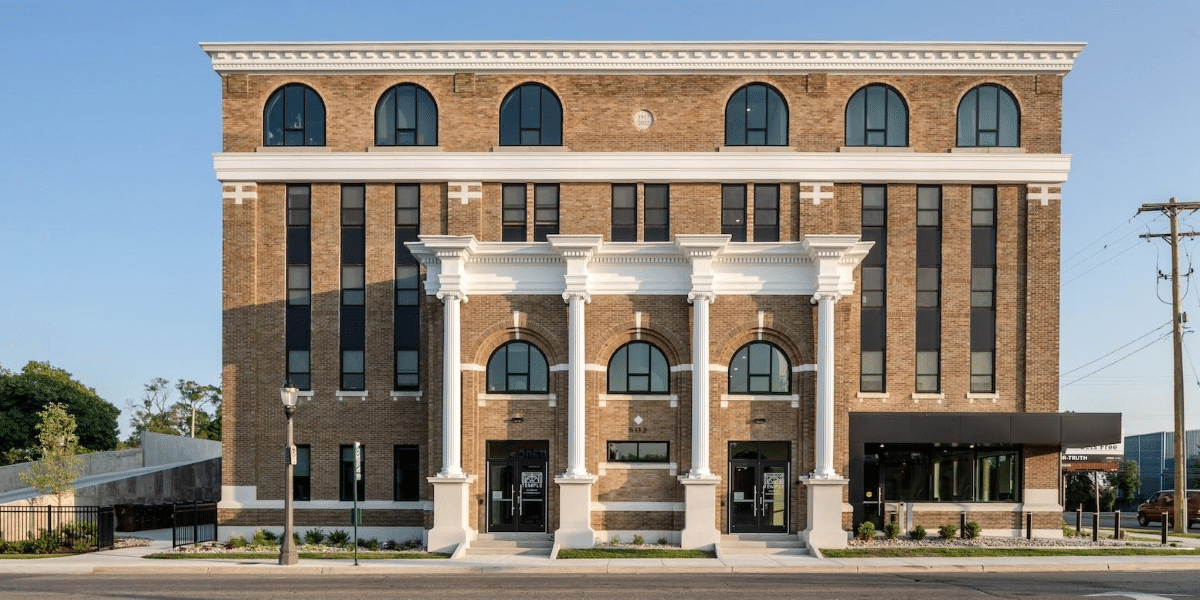Over the past two decades of America’s economic and social transformation, Michigan has experienced various crises of a greater magnitude than surrounding US states. The ‘Lost Decade,’ a prolonged recession from 2000 to 2010, followed by the public health disaster of the Flint water crisis, was more than enough to catalyze a below-average quality of life and stunted economic opportunities.
In recent years, the state has been steadily investing in a brighter future for all its residents with programs like the Build MI Community Grant and the Michigan Community Capital partnership, propelled by local changemakers. Well-known across Michigan as a client-centric environmental consulting firm dedicated to building healthier communities through practical and creative solutions, Triterra is reimagining the future of Michigan, from the bustling automotive hub of Detroit to tight-knit towns at the heart of local development. With its sights set on widespread community revitalization, this disruptor is paving the way for vibrancy and efficiency to represent the Great Lakes state.
Besides its rich automotive history as Motor City and a strong heritage in the manufacturing sector, Michigan boasts many notable features that draw in tourists and talent every year. With four Great Lakes enveloped in the state’s unique geography, Michigan is a national capital for stunning coastlines and fisheries. Other gems like the Motown Museum, Mackinac Island, and the National Cherry Festival add more soul to this state’s overflowing charm.
However, ongoing challenges have overshadowed much of this diversity with the bleak reality of several interrelated factors. Rising foreign competition, the wide-reaching consequences of the 2008 financial crisis, and the housing bubble caused Michigan’s thriving automotive sector to retract significantly, leaving countless people experiencing hardship. The state saw employment declines amid a period of national economic growth, causing young professionals to search for more promising economic opportunities outside Michigan. These scars are on the mend, as public and private investment has increased. Still, Michigan remains in the bottom third of US states for personal income, painting an uncertain picture for future generations.
With a local legacy that has been nearing two decades, Triterra has responded to Michigan’s difficult circumstances by investing in people and the existing infrastructure that is ripe for repurposing. Specializing in brownfield development, environmental consulting, and natural resource management services, Triterra’s expertise has been invaluable in prominent community development projects that spurred the creation of affordable housing and other vibrant, functional spaces.
Triterra’s drive to transform and restore Michigan is prompted by its deeply rooted mission to promote safety and prosperity by balancing business objectives with environmental due diligence. This passion was reinforced after the firm split from its former company, reshaping its ethos and team to reflect the responsiveness, collaboration, ingenuity, and originality that encapsulates Triterra’s founding team.
Since COVID, the firm has experienced impressive growth and was named on the Inc. 5000’s fastest-growing American private businesses list for four consecutive years. This milestone enabled Triterra to expand from two founding members to a team of 47 professionals who share the same unbridled motivation to protect natural environments while accommodating client interests.
The firm has tackled urban decay, one of the most visible residual effects of Michigan’s struggles, in residential and mixed-use development projects. In a time when housing prices have reached unprecedented highs, and the supply of cost-effective options has dwindled, Triterra has helped clients offset the cost of demolishing, repurposing, or constructing buildings across the state.
One of the firm’s first clients involved a historical school building needing serious renovations to become 22 affordable housing units. Unlike competitors who neglect high-value projects that require unconventional solutions, Triterra doesn’t shy away from a challenge. The firm embraces complexity, such as in this project where extreme cold and regulatory setbacks were constant, vowing to offer strategic support regardless of the situation’s demands. This grit and perseverance differentiate Triterra in a market where a transactional culture is normalized and prepares the firm to have an outsized impact on Michigan communities.
Since a coordinated effort to repair the state’s economic health, Michigan Community Capital has contributed substantially to total capital investment, creating and rehabilitating over 3.9 million square feet of commercial space. These projects have led to the development of more than 1,500 housing units and illustrate the crucial role environmental consulting firms play in the progression of property development. Whether offering impact assessments, ensuring regulatory compliance, or providing guidance on brownfield redevelopment projects, pioneers like Triterra are key to creating healthier communities.
“Our team goes the extra mile to offer client-centric services that balance business and environmental concerns, helping bring back life to distressed properties and communities,” says CEO and visionary Don McNabb. “It’s not just what we do; it’s who we are and how we do it that allows us to contribute to Michigan’s evolution significantly.”
With modest population growth projections, Michigan must renovate existing spaces, invest in urban development necessary for attracting businesses and residents, and accommodate a boost in housing demand. With the help of firms like Triterra, this feat can be easily achieved, nurturing a lively resurrection of Michigan’s national acclaim.
Published by Charlie N.
















